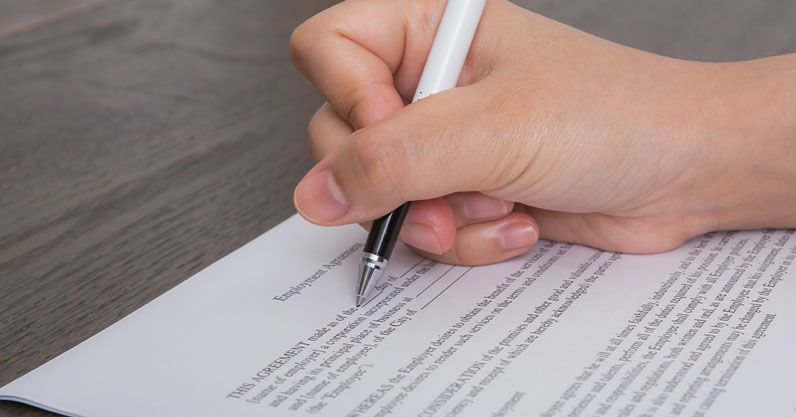Why You Should Make It A Habit To Write Out The Complete Year In Legal And Financial Documents
3 min readBy now you’ve seen the Facebook posts warning you about abbreviating “2020†to just “20†when you write down the date.
Just writing 20, instead of the complete “2020,” will allegedly leave you open to fraudsters who can take advantage of the lapse to steal your identity and access your finances.

Fraud and identity theft are very real, but so are Facebook warnings that turn out to be nothing but attempts to go viral and stir concern. Since we here at eCompareMo are always concerned about genuine threats to our reader’s financial security, we decided to investigate the matter ourselves.
Should you really write out 2020 and avoid abbreviating to just 20 when referring to the year? Why hasn’t anyone warned us about writing down “2019” instead of just “19” then?
Common shorthand
In many parts of the world, when you sign official documents—everything from contracts to checks—aside from your signature, you are also asked to write down the date that you signed the document. This is a way to validate the transaction and keep a record of agreements.
It’s also common and accepted that, instead of writing down the entire date, we abbreviate it numerically.
For example, January 6, 2019, was written as 01/06/19. Instead of the name of the month, you write down the corresponding number, then the day, then the last two numbers of the year. This is a commonly accepted practice and shorthand.
However, security experts (aside from Facebook) are now cautioning that we modify the practice at least for this year. We can continue numerically abbreviating the month and the day BUT we should quit abbreviating the year and write out 2020 in its entirety.
The reason for this is relatively simple: Leaving the year at just “20†leaves space for someone to easily alter the date. For example, adding a simple one and nine, makes it “2019†again or adding a two and a one, makes it 2021.
(Read: Guide To The Most Powerful IDs In The Philippines – And How To Get Them)
What are the legal implications?
In an interview on ANC, Undersecretary Markk Perete of the Department of Justice said that there is no legal precedent that says you can’t abbreviate the dates, but that it’s best not to do so to be safe and avoid tampering.
The ANC report pointed out that it would be possible to extend the six-month period to transact a check, allowing a fraudster to use an “expired†check.
Perete used the example of someone who signed a deed of sale in 2020 but passed away in 2021. If the deed of sale just ready 20, someone could add a 21 and claim the sale is invalidated because it was done when the signatory was already dead.
An altered document could also leave you vulnerable to legal challenges. For example, if the date a will was signed was changed, a fraudster could challenge it and lend it invalid.
The same goes when filing legal complaints and affidavits. If someone alters the dates, then this could invalidate the claims.
There’s also the chance that it could extend or invalidate the prescriptive period of a crime. The prescriptive period is the maximum period of time in which legal action can be perused. If someone alters the date on a complaint, it could be ruled that the crime has passed the prescriptive period and you no longer have a case.
Every new year is an opportunity to learn new things and develop better habits. So why not develop the habit of writing out the dates? It will only take a few extra seconds of your time and is a painless precaution to take against the painful crime of fraud and identity theft.
